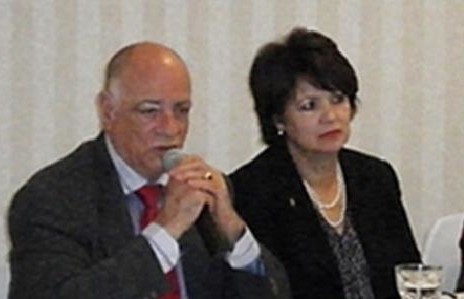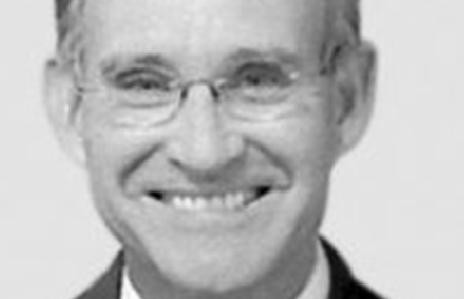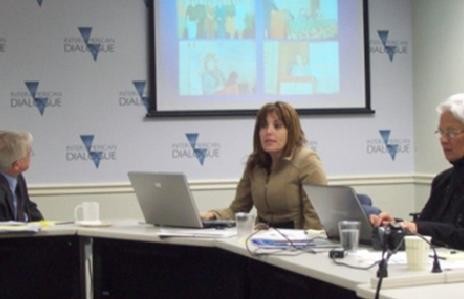
National Conference on Teacher Policy in Costa Rica
Workshop that seeks to promote debate on teacher policy and showcase innovative policies.
Democracy is under threat in Central America and authoritarianism is on the rise. Long-term institutional and economic implications for these countries pose serious challenges for US policy towards the region.
Unchecked political ambitions and abuses of authority in the form of corruption or political and economic favoritism are signs of severe democratic backsliding. Nicaragua is an illustration of the consequences of unconstrained power. But the growing corruption and political ambitions of other Central American leaders could further affect democratic institutions in the region. It is important not only to bear witness but to mobilize proactive foreign policy to prevent authoritarianism from rising.
Political Confinement as Punishment for Dissent
In Nicaragua, the increasingly autocratic Ortega-Murillo regime has repressed all forms of dissent after the massive 2018 protests.[1][2] It has closed all independent media outlets and persecuted journalists, eliminated civil society organizations, suppressed religion freedom and other basic human rights, banished the real opposition, and incarcerated or exiled everyone who opposes it or thinks differently.
Social discontent in the country began after several fraudulent elections and systematic attacks on democratic institutions.[3] In 2021, only months before the general elections, the Ortega-Murillo regime arrested all presidential candidates, along with leaders of the private sector, political parties, and activist groups. Despite their ideological or political differences, the one thing they had in common was their conviction that the transition back to democracy had to take place through free, fair, and supervised elections.
They were arrested in violation of their civil rights, subjected to ill-treatment, psychological torture, and kept in a Stasi-style prison. During that time, they were subjected to unjust trials, found guilty of fabricated charges and, without due process, sentenced using newly approved, Russian-inspired, repressive legislation.
Due to increasing pressure from the international community, including targeted sanctions, Ortega decided to throw 222 prisoners out of the country. On the morning of February 9, 2023, a plane chartered by the Department of State lifted them from Managua and brought them to Dulles International Airport. Subsequently, Ortega stripped them of their nationality and confiscated their assets. The UN recently deemed these actions, together with other atrocities committed by the regime during the protests of 2018, as crimes against humanity. [4]
A History of Power Grabs
Daniel Ortega first obtained de facto power in 1979, when the Sandinista guerrillas, surfing a wave of widespread insurrection, overthrew the Somoza dynasty. He and his fellow socii armis sought to turn Nicaragua into another Cuba. They built a totalitarian socialist dictatorship, transferred all means of production to the state, wiping out more than 40 years of economic development in the process.
The US government-supported Contra War, coupled with the fall of the Soviet Union in the late 1980s, caused a social and economic crisis that gave the Sandinista regime no choice but to accept democratic elections in 1990. Democracy was short-lived. In 2006, Ortega returned to power, this time not through an armed conflict, but through the ballot box, adding his name to the long list of autocrats that have returned to power through elections.
Ortega was able to secure his return to power through another phenomenon that is choking democracies throughout Latin America: changes to electoral rules. [5] As part of an arrangement with the center-right Liberal Party, Ortega was able to force constitutional reforms that granted impunity from corruption charges to then-President Arnoldo Aleman. This was exchanged for the lowering of the percentage required for a runoff election from 50 to 35 percent. The profound division that this pact caused within the Liberal Party allowed Ortega to win the election with a minority of 38 percent against a fractured opposition.
Since 2006, Ortega has been applying the “elected dictators’ manual” and has repeated his well-learned tactics from his days as the leader of the Sandinista totalitarian regime of the 1980s. He made people believe that he had become more democratic, all while gaining control of the judiciary.
Once he seized the judicial branch of government, the road was clear. He used his authority to threaten, blackmail, extort, and coopt all sectors of society, and amassed greater control over the electorate, which in turn, allowed him to win an opaque, non-competitive general election in 2011, gaining absolute control of the legislative branch of government. With absolute command and authority over the state, he put his closest allies in charge of the police and the army and built a formidable paramilitary force. Once he attained a full monopoly of the institutions and the security apparatus, without any available institutional checks and balances, he sought a third term in November 2016, certain of an uncontested victory.
Although people protested the elections, which were considered fraudulent by the international community, they crashed into a wall of violent police repression. Social discontent reached a climax, and, by April 2018, the popular uprising was widespread. Ortega ordered his security forces to suffocate the protests at gunpoint. The result was widely documented by international human rights organizations: nearly 400 people were killed and over 1,000 people were incarcerated on politically motivated charges over a period of less than three months.[6] From that moment on, Ortega established a state of exception.
By 2021, the opposition, fragmented for years by the regime, was nonetheless beginning a process of coalition building for that year’s November general elections. Victory for the opposition was peeking out around the corner. Yet, with just five months before the election, Ortega decided to disband opposition political parties and expanded the crackdown by arresting presidential candidates and leaders from all sectors of society. Thus, Ortega secured his hold on power by force while eliminating civil and political opposition.
Changing Attitudes toward Democracy
In the early 1990s, the turn to democracy in Nicaragua was part of the democratic wave in Latin America. But just a couple of decades later, much of the region began to regress. This reversal was the result of years of continuous and systematic deterioration of democratic institutions and weakened support for democracy from dissatisfied populations.
Latinobarómetro, an NGO from Chile which has been conducting political opinion polls for decades, shows that there has been increasing indifference about the type of regime that prevails. Specifically, there is a growing preference in favor of “effective” governments and growing dissatisfaction with political parties and government performance. More worrisome is that polls show that, over time, fewer people perceive democracy as the best form of government, leaving the area prone to non-democratic regimes. [7]
There is no single explanation for this phenomenon, but changing electoral rules seems to be one of them. Reelection is not necessarily bad for democracy; however, the chances of power sharing suffer when the incumbent changes or twists electoral rules to remain in power. Another endemic problem that has spread over Latin America’s limited democratic life is corruption. This abuse of authority drains scarce resources away from activities that could increase prosperity. Moreover, when corruption is coupled with crime, it is devastating for productivity and growth.
Corruption: A Central American Hurdle
Aside from the despotic Ortega regime, some analysts point out other authoritarian trends in Central America.
In El Salvador, the government of President Nayib Bukele has been able to amass popular support by reducing crime and increasing security through a mano dura policy on gangs. These actions were undertaken by the government during a state of exception approved by the Bukele-controlled National Assembly which has suspended procedural guarantees and constitutional rights in the country. Human rights organizations accuse the Salvadoran government of failing to guarantee liberties and human rights while implementing its security policy and fear that the same methods may be eventually used to quash dissent and silence critical voices. [8] In addition, Bukele, now in absolute control of the state without the presence of institutional checks and balances, changed electoral rules to allow his reelection – a first in the country.
In Honduras, critics of the government have pointed out that polarization coincides with corruption when political elites in the ruling party seek to coopt the judiciary and peddle influence in the legislature. Institutional weakness, corruption, violence, and impunity, according to well respected organizations, undermine the long-run stability of Honduras. [9]
Earlier this year in Guatemala, the incumbent political forces and other interest groups waged a ferocious battle against a smooth transition of power to the newly elected government of Bernardo Arévalo. There were widespread claims that, to preserve elite power, the former government had used the law as a political weapon to prevent investigations into high-level corruption and to undermine democratic institutions. [10] Although Arévalo has expressed his willingness to build robust and healthy democratic institutions, his government faces the dual challenge of meeting enormous expectations from the population and governing with a very weak position of the Semilla party in the legislature, with only 23 out of 160 seats. Therefore, despite a successful transition, democracy hangs by a thread.
Curiously, except for Arévalo’s, these governments have failed to denounce the widespread violations of human rights in Nicaragua. Bukele has preferred to remain silent regarding the atrocities committed by Ortega, and even worse, the Honduran president, Xiomara Castro has defended the non-democratic regimes of Cuba, Venezuela, and Nicaragua – advocating against US sanctions targeted at individuals committing acts of corruption and human rights violations.
In Panama, where elections are around the corner, former President Ricardo Martinelli, who had appeared in polls as the front-runner, was disqualified from running. He was sentenced to 10 years in prison for money laundering. Panama’s Electoral Tribunal allowed his running mate and former public security minister of Martinelli, José Raúl Mulino, to take his place. Some claim that Martinelli, who has received asylum from the Nicaraguan regime and is currently living at the Nicaraguan embassy in Panama, continues to actively participate in politics, supporting the candidacy of Mulino. What will be the fate of Panamanian democracy following a Mulino victory?
The Consequences of Complacency
These trends pose challenges to US policy in the region. First, the deterioration in democratic institutions feeds directly into migration flows. Experts estimate that nearly a million people from Central America will migrate to the US every year in the next three years. US border authorities are recording more than 250,000 illegal entries per month. [11] While this does not consider net migration due to deportations, it is nevertheless concerning. Other domestic implications for the US range from security concerns to drug-trafficking and transnational organized crime.
Second, in a globalized world, democratic decay in Central America also causes social deterioration, which affects the productive capacity of these countries. This, in turn, impacts US competitiveness vis-à-vis other non-democratic states like Russia, China, and Iran, who are seeking to expand their influence in the region.
Finally, these migration flows increase a relationship of dependence. Family remittances comprise more than 20 percent of GDP in Guatemala, El Salvador, and Honduras. In Nicaragua, the country with the largest democratic setbacks, the economy’s dynamics are dependent almost entirely on remittances. In 2023, 30 percent of the country’s national income will come from family remittances. [12] The consequences of remittance dependence are devastating for future productivity and growth in the region, especially when these monies are not leveraged in labor markets and through financial inclusion.
While there have been some sporadic foreign policy efforts by the US to address these problems, there is not an integrated effort to support democracy and discourage authoritarian trends. The lack of a consistent policy approach to this problem is creating a dangerous precedent for the rest of Latin America and for other parts of the world where democracy is also in decline.
The US must establish a coherent policy framework, consistent with its own foreign policy commitments, to discourage these authoritarian trends in the region. The risks of inaction are more costly than more active involvement.
Policy indifference will generate poor outcomes and will exacerbate the trends discussed above. The region could see more antidemocratic regimes like the one present in Nicaragua. These governments will crack down on dissent, kill protesters, put people in jail for expressing criticism, eliminate any form of political competition, close all independent news media, coopt security forces and use them to crush dissent, suppress rights, destroy civil society, the rule of law, and private enterprise. Allowing the slow death of democracy will destabilize the region and send a wave of people north with all the domestic consequences it entails.
Luis A. Rivas is a non-resident senior fellow at the Inter-American Dialogue and a Principal at Varyag Consulting Group, a strategic advisory firm that assists business leaders worldwide on issues of intelligence, security, business strategy, financial transactions, diplomacy, and government relations. This article is based on a lecture given at the Institute of World Politics in Washington DC.
[1] See the annual report of the United Nations High Commissioner for Human Rights and reports of the Office of the High Commissioner and the Secretary General. https://www.ohchr.org/sites/default/files/documents/hrbodies/hrcouncil/sessions-regular/session55/advance-versions/a-hrc-55-27-aev.docx
[2] See the report to United Nations Human Rights Council by the Human Rights Experts on Nicaragua about the human rights situation in the country. https://www.ohchr.org/sites/default/files/documents/hrbodies/hrcouncil/sessions-regular/session52/advance-version/A_HRC_52_63_AdvanceUneditedVersion.docx
[3] There are several technical reports showing evidence of fraud in various electoral processes: The Institute for Democracy and Development (IPADE for its Spanish acronym) provides evidence of the frauds that took place in the 2008 municipal elections and the 2011 general elections; Etica y Transparencia and Transparency International also provide evidence on the shortcomings of the 2008 and 2011 electoral processes; the Electoral Observation Mission of the European Union seriously questions the 2011 electoral results; and, the Carter Center issued a press release referring to the 2008 fraud and the subsequent degeneration of the electoral processes.
[4] See Endnotes 2 and 3.
[5] See the Latinobarometro report on the democratic regress in Latin America. F00016664-Latinobarometro_Informe_2023 (2).pdf
[6] See the InterAmerican Commission on Human Rights (IACHR) report about the human rights violations in Nicaragua in relation to the violent events that took place since the State repressed the 2018 protests. Nicaragua2018-en.pdf (oas.org)
[7] See Endnote 6.
[8] See Human Rights Watch’s World Report 2023 World Report 2023: El Salvador | Human Rights Watch (hrw.org)
[9] See Human Rights Watch’s report on corruption in Honduras. https://www.hrw.org/news/2023/06/09/honduras-strong-action-needed-corruption
[10] See statement of the Council of the European Union about the undermining of democracy and the rule of law in Guatemala. https://www.consilium.europa.eu/en/press/press-releases/2024/02/02/guatemala-council-sanctions-an-additional-five-individuals-for-undermining-democracy-and-the-rule-of-law/
[11] See Inter-American Dialogue in depth analysis https://www.thedialogue.org/blogs/2024/02/migration-and-remittances-an-outlook-for-2024/ and https://www.thedialogue.org/analysis/an-unprecedented-migration-crisis-characterizing-and-analyzing-its-depth/
[12] See the International Monetary Fund remittance forecast in their concluding statement under Article IV of November 2023. Nicaragua: Staff Concluding Statement of the 2023 Article IV Mission (imf.org)
Tres desafíos para la transición democrática frente a la sucesión dinástica
Risk Mitigation Efforts for Radicalization and Dynastic Succession in Nicaragua
State Capture in Nicaragua – The Case for International Pressure
La economía de las remesas y el favoritismo económico del clan
El “buen gobierno”: carreteras sin educación, los “favores” económicos, y la deuda con el BCIE
Workshop that seeks to promote debate on teacher policy and showcase innovative policies.
Former Nicaraguan Minister of Education Humberto Belli recently shared with us his article published in La Prensa on the subject of teacher pay. Belli co-chaired the Task Force on Education in Central America that produced PREAL’s Central American Regional Report Card in 2007 and was a member of the advisory committee for the Nicaragua national…
PREAL reviews broad spectrum of its activities and discusses priorities for improving education policy in the coming year.

